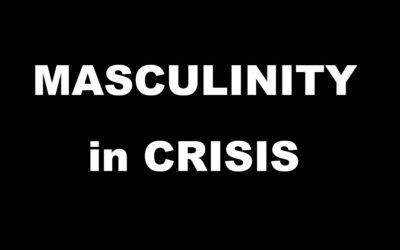Blog & Video Archives
Past Bridge Street Mental Health segment with accompanying text.
Improving Communication
Poor communication is a major problem in many relationships. In fact, of all the problems that bring couples to counseling, poor communication is at or close to the top . Why Do Couples Seek Marital Therapy? | Request PDF (researchgate.net)
Of course, there are different types of communication. There are simple informational exchanges like “What time will you be home for dinner?” However, emotional communication is the kind that many folks have trouble with. Rather than simple, intimate communication, i.e., honestly sharing what your’e feeling and what you want, is complicated.
There are various reasons why couples have trouble talking with one another about intimate things. To do so requires being willing to be vulnerable and willing to listen.
Here are some tips to improve your intimate communication:
Prof. Pastoral Counseling
Despite being around for over 50 years, many people are still confused about what professional pastoral counseling (PPC) is. Pastoral Counseling ? | Pastoral Counseling Syracuse NY (revmichaelheath.com)This confusion is understandable since the term is imprecise.
For example, any minister who gives guidance is, in a sense, a pastoral counselor. I wish to use the term to refer to therapists who are trained and licensed in psychotherapy and are ordained clergy.
Sadly, many people erroneously think that one has to be religious to talk to a professional pastoral counselor. As such, I want to dispel some myths and discuss what makes professional pastoral counseling unique among therapeutic approaches.
COPING WITH PANIC
Anxiety and panic attacks are serious mental health problems. Over the past twenty years, neuroscientists, especially those who study the autonomic nervous system (ANS), have learned a lot about why we worry. Fortunately, the research has also produced more effective techniques to deal with these issues.
Our increased understanding of the neurology of panic has revealed that panic is not limited to anxiety attacks. It is present at different levels along a spectrum. Things like losing one’s temper over a minor frustration or being “triggered” result from panic.
Not surprisingly, recent scientific advances have led to an increased appreciation of the wisdom of Eastern practices such as yoga and meditation. In turn, this increased appreciation has led to incorporating these ancient exercises into the treatment of anxiety,
In light of these developments, here is a summary of the findings and their practical applications.
Young Men’s Crisis
Is masculinity bad ? Many young men are in crisis over what it means to be a man says Professor Scott Galloway during a recent interview on CNN’s Smerconish. Although Galloway has the data to back it up, very few are aware of or seem to care about it.
Galloway, who teaches marketing at New York University and knows a lot about social trends, contends that this masculinity malaise has put many young men in trouble. Scott Galloway: Young men feel abandoned by the Democratic party | CNN Politics
Men are falling significantly behind women in college graduation, jobs, and home buying. Worse, their suicide rate is the highest in 70 years. Suicides are spiking among young men – The Washington Post
Confusion in Context
In some ways, this confusion is understandable. It stems from the backlash women unleashed following the numerous high-profile sexual abuse scandals. The Me-Too movement’s anger, while legitimate, at times cast an overly wide net and intimidated men.
Many men feel under attack and that there is something inherently wrong with being a man. As a result, for folks under 40, relations between men and women have suffered. 50% report not having sex in a year.
What is difficult to understand is why so few, especially progressives, seem not to care. For example, Democratic presidential candidate Kamala Harris’s website lists many special populations of concern and does not mention men.
This omission is disturbing because it ignores the problem of almost seeing men as the enemy for whom they have no empathy or concern. This attitude is ironic because most young men do not share the sexist views of older generations. They understand that traditional/abusive views of masculinity are unacceptable.
That said, what is healthy masculinity? To date, many efforts have tried to define healthy masculinity as being more feminine, i.e., less aggressive and more emotional. Frankly, many young men are confused about who they are.
Unfortunately, some conservative groups are trying to fill this void by attempting to resurrect angry, macho masculinity. In so doing, some openly insult and demean women, even a presidential candidate. Sadly, this approach is working with some alienated men. The ‘Empty Suit’ of Trump’s Masculinity (youtube.com)
REMEMBERING PHIL DONAHUE
Amid all the political hoopla, I was saddened to hear of Phil Donahue’s death. Phil Donahue, influential TV talk show host, dead at 88 – ABC News (go.com)
Although he was among the most popular TV personalities during the late ‘70s and ’80s, I wonder if folks still remember him or appreciate his lasting contributions to journalism and daytime talk shows.
As a journalist, Phil tirelessly advocated for mental health, bringing facts reason to allay fears and stigma. Likewisse, he not only talked with his guests, he also engaged with his audience. His comfortable and relaxed style helped his audience connect and open up in a meaning dialog. Indeed, he helped me, as a young therapist learn how to learn how to talk to and connect with my clients.
Looking back, Phil Donahue and his show were a huge part of my postgraduate education. His programs provided accurate information on a wide range of issues. He made such an impact on me that, even as a poor graduate student, I scraped $800 together to buy a VCR so I wouldn’t miss his shows.
Sadly, given the polarization, lies and incivility that permeate our culture, shows like his no longer exist. Nonetheless, the importance of his pioneering work remains.
I fear that the coarsening of some contemporary news sources and media has so desensitized people to the point that many have come to accept crude and lie-filled reporting as the norm. Therefore, despite the distraction of the political convention, let’s review the accomplishments and legacy of this remarkable man,
Phil Donahue brought many innovations to his program, including spending an entire hour on a single topic and inviting his live audience to ask questions of his guests. Most of all, he conveyed his genuine curiosity and desire to learn and understand not only the details of the topic but also what his audience members cared about and wanted to know.
His famous “Help me out, here.” comment, which he would say to both guests and the audience, expressed his drive to pursue an issue until it was clear.
Apart from his groundbreaking format, there are many other reasons to remember and appreciate Phil Donahue. For me, however, three qualities define his legacy:
1) He took women seriously;
2) His show taught America how to talk intelligently about embarrassing things like mental health and sex; and
3) He gave national attention to important issues before anyone else.
POST-RECOVERY GRIEVING
Recently, a client who had made significant strides in recovering from childhood trauma reported that she was puzzled by feelings of melancholy when thinking about her abusive parents. She noted that, although she no longer felt angry at her abusive father and her...
Online Misinformation
The spectacle and athletic excellence displayed in the Paris Olympics have offered a welcome respite and an uplifting alternative to the harsh realities of the world. Sadly, two incidents demonstrated that not even the Olympic Games are safe from the growing plague of social media misinformation.
For example, protests erupted over a scene presented during the opening ceremony of the Olympics. Conservatives mistook The Feast of Dionysis for Da Vinic’s Last Supper and attacked it as disrespectful to Christians. (Olympic ‘Last Supper’ scene was in fact based on painting of Greek gods, say art experts | Paris Olympic Games 2024 | The Guardian.)
A second outcry came a few days later when anti-tran sources protested the Algerian boxer Imane Khelif’s participation in the Olympics because he was transgender. To be clear, Ms. Khelif is not trans. She has the biological anomaly known as Difference in Sexual Development (DSD) which is not the same as being transgender. (Olympics: Don’t distort facts in Algerian boxer case (bostonglobe.com)
Sadly, online misinformation is not the only problem; our indifference to the truth and our willingness to believe scandalous stories undercuts the standards we make media accountable. Indeed, fact-checking should have prevented both of these false reports from seeing the light of day.
Those who are quick to protest don’t seem to care about the truth. They want to promote lies that agree with their beliefs. Here are some thoughts that explain the psychology of lying and some tips for dealing with it:
The Fear and Paranoia
Jumping to false and negative conclusions is a distortion of perception called paranoia. Paranoia is an unjustified suspicion and mistrust of other people or their actions or the unwarranted or delusional belief that one is being persecuted, harassed, or betrayed by others.
Apart from the Olympics, social media is littered with other baseless conspiracy theories such as ” the deep state,” “the war against Christmas,” or the dangers of the COVID-19 vaccines, which also show an indifference to the facts.
Conspiracy in Context
While conspiracy theories have existed for a long time, they increase during difficult times. Over the past few years, the devastation caused by COVID-19 has overwhelmed many, providing the perfect setting for misinformation to spread. Conspiracy theories express what they fear and dread.
We must understand that harmful experiences predispose us to see other bad events. Hypervigilance, however, also blocks our ability to think clearly. A fearful or angry outlook anticipates trouble and is predisposed to finding it to protect against being caught off guard.
Adding the technologies of social media, the advent of artificial intelligence (AI), in addition to malicious efforts from foreign countries supercharges the impact of misinformation and leads to intensified confusion, fear, and anger. The omnipresence of misinformation makes it difficult to tell the difference between what is true and false.
REMEMBERING “DR. RUTH”
The news of Dr. Ruth Westheimer’s passing stunned me—not in a shocking sense. She was 96 years old; it’s just that, having been inspired and guided by her for over 40 years, it’s hard to think of her not being around.
Her death made me realize how important this woman’s work was to my professional development and personal outlook on life. Beyond my personal appreciation, I want to share some of the innovative and groundbreaking contributions she made to sex education and American culture.*
DR. RUTH IN HISTORICAL CONTEXT
It is important to acknowledge that her message was not original. She belongs to an exceptional group of educators and stands on the shoulders of other great leaders who came before her and talked to America calmly and rationally about sex.
For example, in the 40s, Alfred Kinsey conducted groundbreaking sexual research, which was continued and advanced in the 50s by Masters and Johnson. In the 60s, Helen Singer Kaplan, through her teaching and writing, provided the gold standard for sex therapy. In the 70’s, Phil and Lorna Sarrell humanized sexuality studies at Yale Medical School. Here in Syracuse in the 80s, Sol Gordon was an important voice who used humor to bring sex education out of the dark ages.
What was truly unique about Ruth Westheimer was the way she looked and talked about sex. While others dressed in white coats and spoke academically, she looked like your grandmother and cracked jokes.
Dr. Ruth dared to talk about sex like no doctor had before. In general, she taught America to lighten up about sex and stop being so serious. More importantly, she helped us to stop feeling guilty for even talking about it. Here are some areas of her profound and lasting influence.
Tips for Living Together
Recently, I’ve noticed that more couples are coming to me seeking help before moving in together. While I’ve done pre-marital counseling for many years, what is surprising is that unmarried couples who plan to live together want help too.
Some of these folks have never lived with another person and are looking for basic information about how to get along. Others complain about certain frustrating tendencies in their relationship and want help to prevent them from becoming problems.
Pre-moving-in counseling aims to provide: 1) Realistic expectations for what is involved in becoming a couple; 2) Basic communication and conflict-resolution skills. This lack of understanding is, often due to the lack of preparation provided by families or our educational system; 3) A review of the common adjustments and pitfalls couples living together for the first time face. Here are the basics:
1) REALISTIC EXPECTATIONS
Reviewing a couple’s expectations is important because those expectations are often unrealistic. Many don’t appreciate the enormity of the psychological change involved in becoming a partner.
Over the years I’ve found that couples erroneously believe that living together will be just like living apart and that the transition will be automatic and seamless. While some folks do it more easily than others, the normal adjustments require understanding, intentional negotiations and planning.
When moving in, it’s important to expect some level of anxiety. this is because any change in a routine may create uneasiness and upsets in a relationship. Sometimes couples misunderstand these kerflufies as an indication of a serious relationship problem. Most often, they aren’t.
Having realistic expectations involving the process of getting settled in a new living arrangement means understanding that change is difficult. Anticipating a stressful period of adjustment can normalize the difficult moment and prevent needless worry.
Likewise, it is important to understand that working things out does not just happen. It takes effort and patience. Unrealistic Expectations: The Importance of Recognizing and Reality-Testing Them. | Pastoral Counseling Syracuse NY (revmichaelheath.com)
2) COMMUNICATION, EXPRESSING ANGER AND CONFLICT RESOLUTION
In addition to realistic expectations, good communication skills are important to maintain good relations during a time of change as well as going forward. The decision to live together is a perfect time for a couple to learn and perfect their communication skills .
I-statements are the key to constructive communication. In addition to expressing a person’s feelings and wants, they also provide a way to express anger constructively and without attacks or name-calling.
Learning to process anger and restore a reasonable state of mind is necessary to successful conflict resolution and to negotiate win/win outcomes.
In addition to having realistic expectations and skills, here are some common potential problems. Anticipating and working on them in advance can greatly reduce the stress of learning to live together. Chores, finances, emotions: Tips for couples moving in together – Vox :
SOCIAL MEDIA ALERT!
Recently, you may have heard that the Surgeon General of the United States urged Congress to place a black box warning label on social media. We’ve all seen them before on various prescription bottles as well as on all tobacco products.
In this case, Surgeon General Vivek Murthy told Congress that the labels are needed because compelling evidence shows that children who watch more than 5 hours of social media a day are twice as likely to experience anxiety and depression compared to those who did not.
In addition, studies reveal that kids who are heavily involved in social media like Snapchat, Instagram, YouTube and TikTok develop poor body image and self-esteem. The constant exposure to perfect bodies and amazing accomplishments posted by their peers leads kids to experience a false sense of inferiority and inadequacy. Surgeon General Issues New Advisory About Effects Social Media Use Has on Youth Mental Health | HHS.gov
Many folks have been concerned about the long-term effects of smartphones and social media on child development for years., However, the conclusions of repeated studies regarding the impact of social media on a child’s mental health are clear. SMART PHONES AND TEENS | Pastoral Counseling Syracuse NY (revmichaelheath.com)
Admittedly, smartphones and social media have become integral parts of modern life. Thinking that children can be protected from any exposure is unrealistic. That said, there are basic steps that parents can take to reduce exposure and thus minimize this risk for their children. Here are some tips to consider for your family:
Leave it to Beaver
Recently, FETV began airing the original Leave It to Beaver television series and I couldn’t resist watching it. Leave it to Beaver | FETV CBS first aired the series on Friday, October 4th, 1957 at 700 pm. In 1958 it switched to ABC on Thursday night. List of Leave It to Beaver episodes – Wikipedia
LTB was my favorite TV shows when I was growing up. I suppose that was due, in part, to the fact that Jerry Mathers, (who played Theodore Cleaver, “The Beaver”) and I were the same age. I could really relate to his weekly adventures and mishaps.
The Critics
Over the years, critics panned the show for idealizing and avoiding difficult reality. It, along with other shows like Ozzie and Harriet and The Donna Reed Show, are often cited as prime examples of the sugar-coated programming of the 1950s .
Many critics have rightly noticed that everything in the Cleaver household was just too perfect. Indeed, serious problems were never explored. Each episode presented a neat and tidy moral lesson and a happy ending. To be fair, the Zeitgeist of the 50s was softer than the coarser texture of today’s culture.
One wonders how Ward and June would have faired if they were confronted with a serious medical crisis or an alcohol or infidelity problem. Likewise, we are curious how they would have dealt with things like social media or internet porn. The SG on SM & Kids | Pastoral Counseling Syracuse NY (revmichaelheath.com)
Those differences noted, rewatching the episodes surprised me. Despite its age, I believe the series offers important lessons for us today but not in the traditional way.
Praise for Leave it to Beaver has centered around its wholesome moral lessons, While true, I found LTB’s greater contribution was not so much in its moralizing but in the ways it used constructive communication and empathy skills to deal with everyday problems.
Despite the dramatic changes in culture and technology, I found the fundamental ways that the Cleavers talked to and treated one another amazing. Even though I-statement training was not around until after the series had ended, they used its insights and refrained from blaming or name-calling.
I have found the shows so helpful that I have started using LTB episodes with couples and families to show what important communication and empathy concepts look like in action. Here are some examples from an episode from 1958.
Smartphones & Phubbing
Every new major technology disrupts the cultural and social patterns into which it emerges. The radio and then television changed the evening routines of many households in America. So, it is no surprise that the smartphone impacts how we interact and relate to one another.
It is not an exaggeration to say that smartphones have revolutionized many aspects of our lives and made life more convenient. Smartphones have freed us from being tethered to a computer and have allowed us to get information anywhere or at any time.
In addition to keeping us informed, smartphones also connect us in ways unimaginable even forty years ago. Through mobile communication and social media, people stay in touch by sharing their thoughts, photos and videos,
This increased information and social interaction has created new problems for our society. Aside from the oft-reported problems of increased misinformation, poor adolescent self-esteem and overall anxiety, the addictive nature of smartphone use produces new problems for couples. Smart Phones, Social Media and our Psyche: Three things to know about the technical marvel in your pocket. | Pastoral Counseling Syracuse NY (revmichaelheath.com)
The amount of time spent on smartphones has created a serious problem for many marriages. Recent studies reveal that 70% of couples complain that their partner’s smartphone use interferes with their relationship. The term used to describe these issues is phubbing (phone/snubbing).
Phubbing is defined as the act of ignoring someone you are with and giving attention to your cell phone instead. ‘Parallel Scrolling’ In Bed With Your Partner Could Be Killing Your Relationship | HuffPost Life
Sound familiar ? Here are some questions and things to think about concerning the consequences of spending too much time on your smartphone.:
First-Aid for Anxiety
With the stressors of inflation, cultural polarization and wars, more and more people are feeling anxious. It seems that every day new reports are showing how anxiety levels are climbing throughout the world. The social and economic consequences of COVID-19 have...
Psychology and Easter
Happy Easter, Everyone !
Having said that, I realize that Easter means different things to different people. As a child, Easter meant Easter Baskets and brightly colored eggs. For others, it’s a celebration of Nature and the return of Spring after a long and cold winter.
For many Christians, Easter is all about the miracle of Jesus’ resurrection from the dead after dying on the cross. It’s the cornerstone of Christianity’s belief in salvation and eternal life.
For some Christians, however, a literal interpretation of the story is a stumbling block. They believe in many of the teachings of Jesus but feel that the supernatural narrative simply defies science and logic.
In addition to supernaturalism, another the emphasis that conservative Christianity places on suffering and the necessary death of Christ creqtes a problem for many. The notion that humans are inherently evil and deserving of eternal damnation unless a blood sacrifice is offered for their redemption is incomprehensible and does not fit with the belief in a loving God.
Blessings for those who find meaning in the traditional story. But for those who see it as an obstacle to their faith, I suggest that a literal understanding is not the only way the Easter story can inspire or have meaning. So I offer these thoughts today.
Myth of Needing Counseling
This week marked the fourth anniversary of switching my counseling practice from in-person to tele-therapy. This change was due to the threat posed by the COVID-19 pandemic. Beyond changing the way counseling is delivered, COVID-19 affected mental health in a variety of ways.
Multiple studies agree that COVID raised anxiety and depression levels in America and around the world. COVID-19 pandemic triggers a 25% increase in the prevalence of anxiety and depression worldwide (who. int)
Much of the mental distress came from supply shortages and emergency measures instituted to protect public health. As a consequence, these changes resulted in the loss of jobs and increased social isolation.
While working and learning remotely from home was necessary, the isolation created unexpected emotional and relational problems. Getting help to deal with these issues is further complicated by persistent myths about mental health counseling:
2017
- May 31, 2017
Understanding the Parallels between Biblical and Psychological Wisdom - May 14, 2017
Aprreciating the Emotinal Complexity of Mother’s Day - May 02, 2017
Redefining Mental Health: The Struggle to be Reasonable - April 16, 2017
Easter and the Therapeutic Process: The Rest of the Story - April 02, 2017
Judgers and Perceivers - March 19, 2017
Communication Tip # 6 : Understanding the Differences between Thinkers and Feelers - March 04, 2017
Communication tip #5 : Understanding iNtuitive and Sensate Personality Differences - February 21, 2017
Communication Tip # 4: Understanding the differences between Extroverts and Introverts - February 03, 2017
Aristophanes and the Myth of Androgyne: The Soulful Meanings of Love - January 15, 2017
The Myth of “Holding on” to the Past : Neuro-science and the Grieving Process - January 02, 2017
Being Reasonable about New Year’s Resolutions:
2016
- December 17, 2016
New Research offers Hope for Resistant Depression - December 04, 2016
Bursting Some Common Myths About Pastoral Counseling - November 23, 2016
Thanksgiving: A Time for Regaining Perspective and ,for some, Conflict - November 11, 2016
Dealing With Political Grief - November 02, 2016
Explaining the Facebook Study: Turns out Cyber Friends Are Important Too - October 19, 2016
Beyond Romantic Myths: 9 Tips for Getting real about what it takes to have a great marriage - October 03, 2016
Why Mental Health Check-Ups Are a Good Idea - September 15, 2016
Appreciating the Health Benefits of Good Friends - August 31, 2016
When it comes to sex, men are Windows and women are DOS - August 14, 2016
Good News for People Who Worry about Memory Loss - August 05, 2016
The Psychology of Blaming: Learning to See the Fear Behind the Anger - July 07, 2016
Psychological Manipulation: What it is and How to deal with it. - June 21, 2016
Coping with the Absurd and the Horrifying Stories in the News - June 05, 2016
Do you have to be “crazy” to see a therapist ? - May 18, 2016
Sex in Marriage : Are You having Enough ? - May 07, 2016
Updating the Image of Psychotherapist: A Life-Tour Guide - April 29, 2016
Updating the Image of Psychotherapist: From Orthodontist to Helicopter Pilot When people think abo - April 12, 2016
Spring Cleaning for your Marriage - March 28, 2016
Some thoughts about the importance of Hope - March 16, 2016
I-Statements 101: The Keys to Expressing Anger Constructively - March 02, 2016
Understanding Leisure as an Essential Part of Self-Care - February 12, 2016
Romantic Myth # 3: Love is a Special Feeling - February 09, 2016
Romantic Myth #2 : Love Never Ends - February 06, 2016
Bursting Popular Myths about Love - January 25, 2016
How to Make a Worry List: The Importance of Emotional Triage - January 12, 2016
Want More Intimacy In Your Relationship? Try Sharing Your Dreams - January 02, 2016
The Secret to Keeping New Year’s Resolutions
2015
-
- December 21, 2015
Light and the Meaning of the Holidays - December 07, 2015
Dealing with Increased Terror-Related Anxiety - November 20, 2015
Dealing with the stress of Holiday Gatherings - November 10, 2015
Are You An IMpatient Person ? - October 27, 2015
How Exchanging Marital Report Cards Can Improve Your Relationship - October 07, 2015
October is Domestic Violence Awareness Month - September 21, 2015
Understanding the new “Female” Viagra - September 12, 2015
Talking about end of life issues and facing our fears of dying - August 24, 2015
Bursting the Forgiveness Myth - August 13, 2015
Understainding our False Guilt about Sex - August 02, 2015
Do you know your “Organ of Distress”: Recognizing when an emotional fire is about to break out. - July 20, 2015
How to Build Trust After an Affair . - July 05, 2015
The “Emotinal Cigarette” – A breathing exercise to help you relax. - May 18, 2016
Sex in Marriage : Are You having Enough ? - June 24, 2015
Good News for Work Outs - June 15, 2015
Sneaky Depression Triggers - June 03, 2015
Human Sexuality Is More Complicated Than You Think. - May 28, 2015
Mental Health Myth # 4: Talking to friends is the same thing as going to therapy. - May 28, 2015
Myth # 3: Psychological disorders are very rare - May 06, 2015
The Myth of Mental Illness: 2.0 - May 03, 2015
Did you know that May in Mental Health Awareness Month ? - April 25, 2015
Bruce Jenner Interview Outshines Olympic Gold - April 10, 2015
White House Supports Ban on “Conversion Therapy” for Gay and Transgender Youth - April 03, 2015
Sexism in FDA: Continues a Double Standard, Hurts Women - March 16, 2015
Taking Your Emotinal Pulse - March 05, 2015
Your Emotional Docimeter
- December 21, 2015
Rekindling Passion: Part Two – The Secret to Re-igniting the Fames of Desire
-
- January 30, 2015
Rekindling Passion: Part One – The Truth about Aphrodisiacs - January 14, 2015
Emotional Triage and the Worry List - January 06, 2015
A Check-List Before Making Your New Year’s Resolutions
- January 30, 2015
2014
- December 10, 2014
Reducing Stress Around the Holidays - November 23, 2014
Feeling Grattitude When Times Are Hard - November 07, 2014
Reducing Stress for Seniors : Tips for Dealing with Everyday Worries and Finding More Joy in LIfe - October 27, 2014
Five Things You Didn’t Know About Halloween - October 14, 2014
Having Good Sex is a Sign of a Healthy Marriage - September 30, 2014
New “Consent” App Asks Partners Important Questions to Think About Before Having Sex - September 09, 2014
Lame Excuses – Why we make them. How to stop. - August 13, 2014
Robin Williams’ Severe Depression: Keeping Things in Perspective - July 16, 2014
The Quiet Crisis: Adult Children Caring for Aging Parents - June 18, 2014
Clearing up the confusion about Transgendered People and Gender Non-Conformity: Getting the medical - May 21, 2014
Getting Rid of Grudges: Just let it go – or maybe not. - April 16, 2014
Finding Romance among the Diapers - March 26, 2014
Bursting the “Hard Work” Myth”: The Importance of Leisure - February 12, 2014
Wedding Insurance and Pre-Marital Counseling :Bursting the Obligation Myth. - January 15, 2014
Submissiveness and Leadershipin the Modern Marriage
2013
- December 23, 2013
Reducing Stress Around the Holidays – A Pastoral Counseling Approach - December 18, 2013
Balancing Career and Family - November 19, 2013
Dating Younger: How the internet and social media have expanded dating choices for single people - October 30, 2013
Five Things You Didn’t Know About Halloween - October 09, 2013
Are You Bing Bullied in the Workplace ? - September 04, 2013
Are You Addicted to the Internet ? - August 14, 2013
Post-Partum Depression: What every expectant or new mom needs to know. - July 31, 2013
Secrets of Assertiveness 101: - July 08, 2013
Sex Education for Adults: Cheating - June 17, 2013
PTSD Awareness - June 05, 2013
Leaving the Nest – Vaulable Tips for Parents and Young Adults - May 22, 2013
Five Mental Health Myths - May 08, 2013
A Spring Cleaning for Your Marriage: Personal Appearance - April 17, 2013
Dealing with the Boston Marathon Bombings? - March 28, 2013
“Breaking up” with your Hairdresser - March 13, 2013
Is This ( am I ) Normal - February 27, 2013
Romantic Second Chances: When should I give him (her) another chance? - February 13, 2013
Caring and Consideration: The Keys to Lasting Passion - January 17, 2013
Emotional First Aid: Tips for Responding to Everyday Psychological Distress - January 02, 2013
New Year’s Resolutions: Why We Brake Them, How To Keep The,
2012
-
- December 19, 2012
Take Controle of your Holiday Stress - December 03, 2012
Life Smarts and The Intelligence Myths
- December 19, 2012
- October 30, 2012
Here’s the Skinny on Scary: The Facts about Phobias - October 19, 2012
Oh, I Remember it well … or maybe not ! - September 26, 2012
The Importance of Remembering - September 05, 2012
Going Back to School Chaos: Help for Parents - August 17, 2012
Money Conflicts and Marriage: Tips for Keeping the Peace - July 30, 2012
Using Your Imagination to Overcome Procrastination - July 23, 2012
UPreventing Tragic Story Overload in the Wake of the Colorado Massacre - July 09, 2012
Redefining Normal: An Inclusive Way of Understanding Mental Health - June 27, 2012
PTSD National Awareness Day : Myths and Facts - June 20, 2012
Reducing Stress When You Travel - May 30, 2012
How to Cope with an Unreasonable Boss - May 16, 2012
How to Disagree without Being Disagreeable - May 14, 2012
Myths and facts about happiness: What really makes us happy ? - April 25, 2012
Body Language: Our Emotional Traffic Lights - April 04, 2012
The Importance of Work Place Colleagues - March 14, 2012
Stress and Relationships - February 29, 2012
Is It Love or Chemistry ? Tips for knowing when real love comes along. - February 13, 2012
Can Love and Romance Last ? Yes, But It Takes Work ! - January 18, 2012
Why am I so Impatient ? Tips for Dealing with the New Technologies that are Driving us Crazy./a> - January 04, 2012
The Psychology of Successful Weight Loss — Tips for Avoiding the Emotional Pitfalls which Sabotage
2011
- December 23, 2011
Are You Emotionally Out of Shape ? Here’s a Check List to Help You Become Emotinally Fit - December 07, 2011
Don’t be So Defensive – Tips for Dealing with Criticism Gracefully - November 23, 2011
Feeling Gratitude in the Wake of Hard Times - November 08, 2011
The Truth about Secrets and Itimacy in Marriage - October 26, 2011
How to Have A Constructive Argument - October 12, 2011
The Psychological Cigarette – Understanding the Breathing/Relaxation Connection - October 03, 2011
Am I OCD or just really particular ? - September 12, 2011
The 411 about Marriage Counseling – What it Can and Can’t do. - August 09, 2011
Psychology and Smart Phones: The Risks of Overusing your PocketPC - August 01, 2011
The Art of Compromise: Keys to Successful Marital Negotiation - July 20, 2011
Planning your wedding ? Don’t forget your relationship: the Essentials - July 05, 2011
Creating 2nd Chances: Tips for Turning a Bad Situation into a Good One - June 08, 2011
The Seven Year Itch: Why it Happens and How to Prevent i - May 25, 2011
Fair Fighting – Some Ground Rules for Resolving Marital Conflicts - May 11, 2011
Unnecessary Criticism: Why we do it ; How to stop it - April 27, 2011
Money Conflicts in Marriage: It’s not just about the Money - April 13, 2011
Spring Cleaning Your Marriage: Personal Appearance - April 01, 2011
Understanding and Coping with Jealousy in Marriage - March 16, 2011
Therapeutic Self-Talk: What it is, Why it’s Helpful and How it Works . - March 09, 2011
Breaking the Ice After an Argument: Understanding the Psychology of Post Argument Silences - February 23, 2011
Guilt-Tripping and Emotional Manipulation No one likes to be guilt-tripped, yet it happens all - February 14, 2011
The Secret of Keeping Romance Alive: Tips for Busy Couples - January 26, 2011
Sibling Relationships 101:Tips for Updating your Sib Status - January 19, 2011
How Words Can Help Us to Heal The tragedies of the Tucson shooting has created many emotional wounds - January 14, 2011
A Myth About Mourning Although most of the country was moved by the ceremony held for the victims - January 06, 2011
Boosting Your Brain: Sorting out the Facts from the Myths
2010
- December 29, 2010
End of Year Marital Review and Marital Resolutions for the New Year - July 19, 2010
Pouting - June 28, 2010
Are You Just Discouraged or Really Depressed ? How to Tell the Difference - May 25, 2010
Emotional False Alarms - May 06, 2010
The Science of Making Up - April 12, 2010
Spring Cleaning for your Marriage
2009
- December 07, 2009
Marital Make-Overs for the Holidays: Tips for Fallling in Love All over Again - November 02, 2009
Marriage Is Hard - October 05, 2009
Keeping Your Cool - September 10, 2009
Nagging: Why we do It , How to Stop - July 23, 2009
Understanding Affairs - June 30, 2009
Interviewing Successfully - June 01, 2009
Helping our Parents with Difficult Decisions - March 09, 2009
The Good News About Stress - February 19, 2009
Talking to Teens about Sex
















